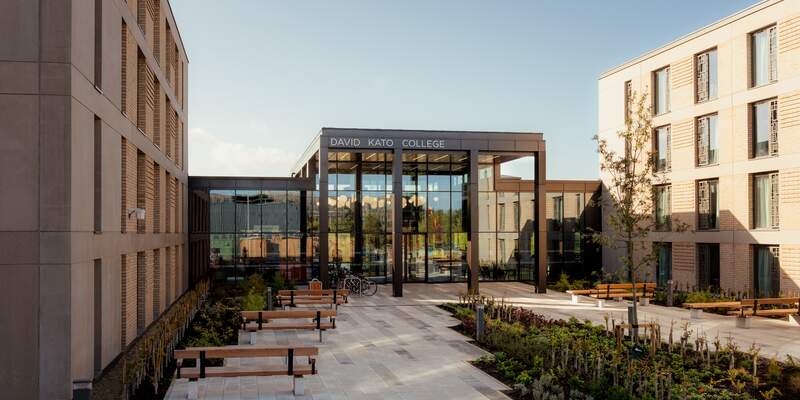
The future of human rights: Research, activism, sanctuary and story-telling
This event has now finished.
Room RCH/037, Ron Cooke Hub, Campus East, University of York (Map)
Event details
David Kato College Official Opening
Threats to human rights are many and diverse and can be seen across the globe, whether it be religious persecution, ethnic and racial oppression, violence against women, anti-LGBT+ legislation, or attacks on political space and democratic freedoms. With so many unjust and unfathomable examples of oppression occuring every day, how can we begin to comprehend and respond to such events? Join our panel as they reflect on some of the ways in which we might tackle these challenges to human rights collectively by enhancing awareness and activism through academia, art, broadcasting and film-making.
This discussion will celebrate the opening of David Kato college, named in honour of the human-rights defender and gay-rights activist who was tragically murdered in 2011, having previously been a Protective Fellow on the Human Rights Defenders Programme at the Centre for Applied Human Rights at the University of York.
Find out more about David Kato
This programme continues to welcome Human Rights Defenders every year from across the world and works in conjunction with a variety of scholarships and support schemes to maintain York’s status as a University of Sanctuary.
As the University celebrates its 60th anniversary and maintains its commitment to being an institution of social purpose and public good, this event will also mark the launch of the York Sanctuary Fund which will aid the University’s efforts to support and expand these schemes.
This event will be followed by a drinks reception and an opportunity to view an exhibition of artworks and creative activism which reflects upon and responds to the challenges faced by Human Rights Defenders.
Our 60th year offers us a moment in time to reflect on our role as a University for social purpose and public good. We will be marking this mission with the opening of David Kato college, named in honour of the human-rights defender and gay-rights activist. Join us to hear some of the ways we can tackle challenges to human rights collectively, by enhancing awareness and activism through academia, art, broadcasting and film-making. As part of our University of Sanctuary ambitions, we will also launch York's new Sanctuary Fund.
About the speakers
Fawzia Ehsani is a PhD student at the Department of Politics at the University of York. Her research focuses on the efficiency of regional and international organizations in Afghanistan’s reconstruction after 2001. Before joining the University of York, Fawzia was Deputy Minister for the Afghan Ministry of Transport and Senior Advisor with the High Council for National Reconciliation.
Professor Paul Gready is the Co-Director of the Centre for Applied Human Rights. Paul has worked for Amnesty International (on East and Southern Africa, and India) and a number of other international and national human rights organisations, and has wide-ranging experience as a human-rights consultant. His research interests include universities as sites of activism and protection, human-rights practice, transitional justice, culture and human rights, and human-rights cities.
David Hickman (Chair) is a documentary filmmaker whose recent work has explored human rights and related questions in the US, the Caribbean and South Asia. Race and Intelligence: Science's Last Taboo, his feature-length film for Channel 4, won the Grierson Award for best science documentary in 2010. With former BBC journalist Rageh Omaar, he travelled through the US, the UK and South Africa, in search of reasons for a troublingly persistent 'race gap' in IQ test data. In 2011 (and again with Rageh Omaar) David made three short films for the Al Jazeera series, Slavery: A 21st Century Evil. He recorded stories of child slavery in Haiti, bride trafficking in India and bonded slavery in Pakistan. David's earlier films and series (as producer or director) have picked up the Grand Jury Prize at the Sundance Film Festival, two Emmy Awards and a Peabody Award.
Mirta Lourenço, is the Chief of the Section for Media Development and Media in Emergency in the UNESCO Communication and Information Sector.
Frank Mugisha is a Ugandan LGBT advocate and Executive Director of Sexual Minorities Uganda (SMUG), who has won the Robert F. Kennedy Human Rights Award and Thorolf Rafto Memorial Prize 2011 for his activism. Mugisha is one of the most prominent advocates for LGBT rights in Uganda.
Karim Shah is an Emmy-award-winning producer/director. He has shot and produced investigative current affairs films and observational documentaries, world-wide, from Pyong Yang to Timbuktu.
Venue details
Wheelchair accessible
Hearing loop

